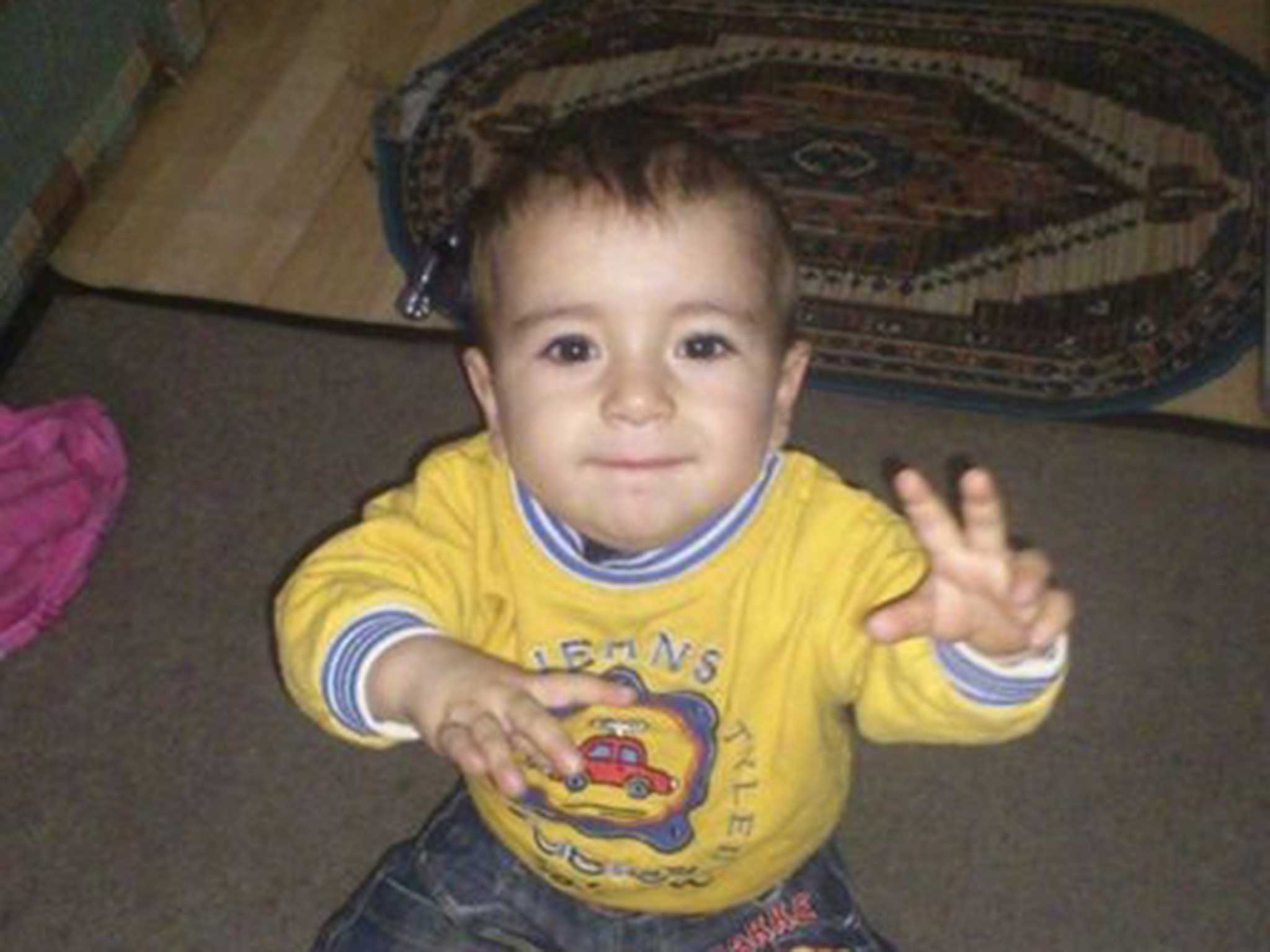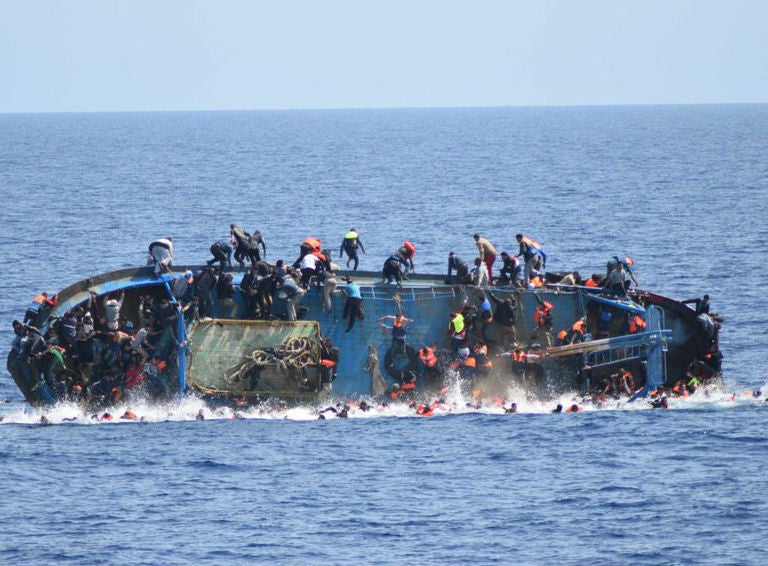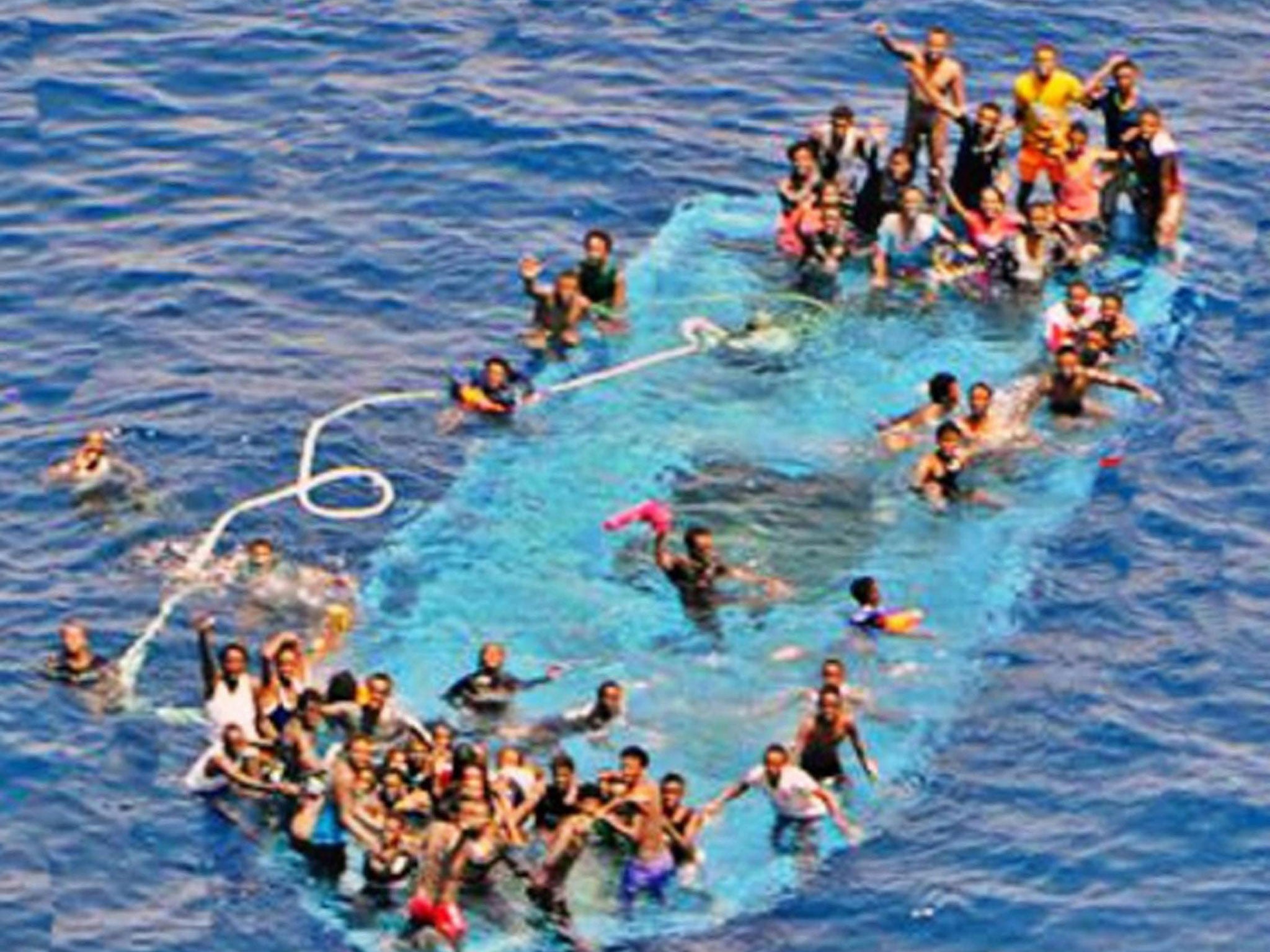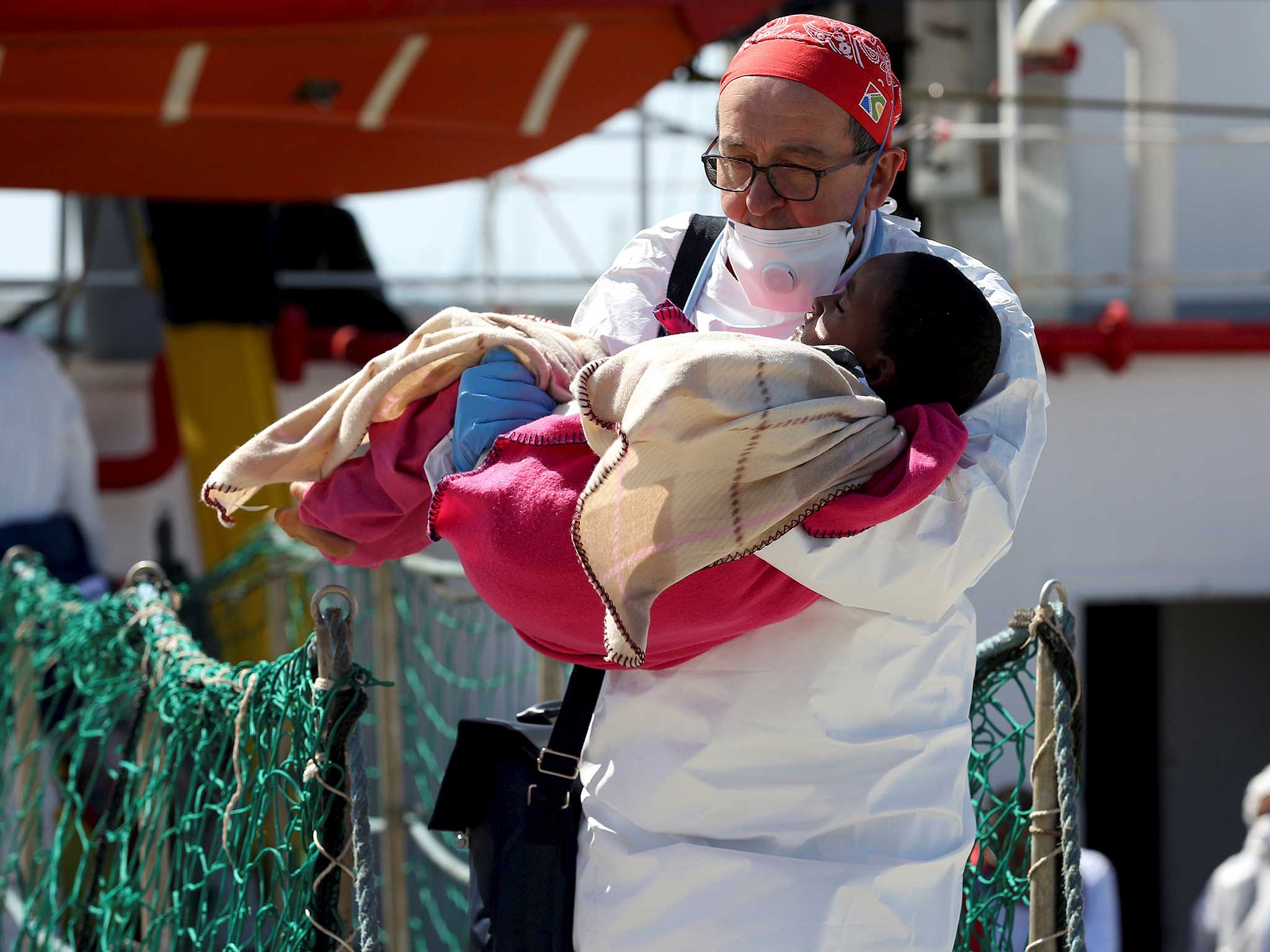Aylan Kurdi's father says his son 'died for nothing' as refugee disasters put 2016 on course to be deadliest year ever
More than 800 migrants and refugees have drowned in disasters over the past week alone

Your support helps us to tell the story
From reproductive rights to climate change to Big Tech, The Independent is on the ground when the story is developing. Whether it's investigating the financials of Elon Musk's pro-Trump PAC or producing our latest documentary, 'The A Word', which shines a light on the American women fighting for reproductive rights, we know how important it is to parse out the facts from the messaging.
At such a critical moment in US history, we need reporters on the ground. Your donation allows us to keep sending journalists to speak to both sides of the story.
The Independent is trusted by Americans across the entire political spectrum. And unlike many other quality news outlets, we choose not to lock Americans out of our reporting and analysis with paywalls. We believe quality journalism should be available to everyone, paid for by those who can afford it.
Your support makes all the difference.Aylan Kurdi's father has said his son and family "died for nothing" after a string of boat disasters in the Mediterranean that have put 2016 on course to be the deadliest ever year for refugees.
Abdullah Kurdi, who survived the sinking that killed his wife and two children as they attempted to cross to a Greek island in September, said the global outpouring of grief following the publication of harrowing photos of three-year-old Aylan's body had changed little.
“Refugee children continue to drown every day, the war in Syria has not stopped,” he told Italy's La Repubblica newspaper.
“I see countries who build walls and others that do not want to accept us. My Aylan died for nothing, little has changed.”
At least 880 migrants died last week alone and deaths are up more than a third compared to the same period last year, according to figures compiled by the United Nations refugee agency (UNHCR).
Shipwrecks and capsizings have claimed 2,510 lives so far this year, compared to 1,855 in January to May 2015, which ended as the deadliest year on record for those crossing the Mediterranean to reach Europe.
While the number of disasters in the Aegean Sea has fallen since the imposition of the controversial EU-Turkey deal, which is seeing refugees arriving in Greece detained with the threat of deportation, numerous sinkings have been recorded between Libya and Italy.
This year is “proving to be particularly deadly”, UNHCR spokesman William Spindler said.
"At the moment (smugglers) are packing people on boats that are barely sea-worthy and many cases are not meant to make the crossing.
"What happens is as soon as they depart from shore they call for rescuers and then rescue services come and rescue them.
"It's a race against time to get there before the boats sink, in some cases it gets there too late."
Mr Spindler reiterated UNHCR's appeal to the European Union to allow for more legal pathways for refugees to reach Europe, and said it was “shameful” that fewer than 2,000 people had been resettled under a plan announced last year to home 160,000.
The International Organisation for Migration (IOM) said that just 13 deaths were estimated in the first three weeks of May 2016 but disasters last week, including at least two major sinkings, had killed almost 1,000 people.
Survivors of a sinking on Thursday said an engineless wooden boat with more than 550 passengers on board was being towed by another smuggling boat, carrying an estimated 800 people, when the captain cut the tow line.
Refugees who were rescued and taken to Italy told the IOM the second vessel to start sinkinged and eventually capsized, leaving just 87 survivors.
Stefanos, a young Eritrean man who had been on board, said he was among women and children packed in the hold.
“We were taking on water, but we had a pump that helped us to push the water out,” he said. “When the pump ran out of fuel, we asked for more fuel to the captain of the first boat, who said no.
“At this point there was nothing left to do: the water was everywhere and we slowly started to sink. There were between about 35 women and 40 children next to me: they all died.”

Survivors reported that they did not want to leave Libya in the conditions but were forced aboard by armed smugglers.
At least 250 migrants died in another deadly incident, when a boat carrying 350 asylum seekers went down. Only 45 bodies have been recovered and up to 280 people remain missing, presumed dead.
Among the victims was a drowned baby, believed to be no more than a year old, who was pulled from the water by a German humanitarian organisation.
More than 13,000 migrants were rescued in the stretch of water known as the Channel of Sicily last week, bringing the total brought ashore this month 47,600 men, women and children.
There have also been rescues in Greece, including a boat with 64 people on board that issued a distress call of the coast of Crete on Friday.
A 40-year-old Iraqi man who was rescued said he was trying to join his wife and three children in Glasgow and said he would rather die than wait up to six months for his asylum application to be decided in Greece.
“On the ship the smugglers took our mobiles and locked us inside for the most of the journey,” he recalled.

“They were on the upper deck, where they were driving and smoking cannabis.
“They didn’t let us see them. They just shouted at us: 'Shut up! Shut up!' They didn’t give us food or water for 36 hours. There was no toilet on our deck.
“Everyone was crying, vomiting and some lost consciousness couple of times. We were scared and thought we were dying.”
Around 204,000 asylum seekers have arrived by sea in Europe so far this year – 156,000 in Greece and 47,000 in Italy, where numbers are rising following the closure of the smuggling route over the Aegean Sea.
Federico Soda, director of the IOM’s Coordination Office for the Mediterranean, said the high number of arrivals was partly due to improving weather and also to the use of larger wooden vessels that carry up to 700 migrants.
“During the last few days we have had major accidents involving unsafe wooden boats,” he said. “This also explains the increase in the number of migrants dead or missing: one accident can result in hundreds of fatalities.
“This is a humanitarian emergency in the desert and at sea where thousands of people are dying.”
Mr Soda praised the work of rescue ships patrolling the region, including European Union, Italian and charity missions and said funding for the life-saving work must continue.

“But these operations are not in and of themselves a solution,” he added. “We must come together to change irregular, dangerous and costly migration to migration that is legal, safe and orderly.”
Refugees have also been killed attempting to cross the English Channel either through the tunnel or by boarding ferries, rowing or even swimming.
An RNLI boat rescued 18 Albanian asylum seekers, including two children, and two British smugglers after their inflatable boat began to sink off the coast of Kent on Saturday night.
David Cameron has announced that Britain is to send a warship to the Mediterranean to combat people smuggling as EU operations continue.
The majority of asylum seekers currently arriving in Italy are from sub-Saharan Africa, with the largest group from Nigeria, at 15 per cent, followed by Gambia, Somalia, the Ivory Coast, Eritrea, Guinea and Senegal.
In Greece, 49 per cent of those to have arrived so far this year were from Syria, while a quarter were from Afghanistan, 15 per cent from Iraq and others from Pakistan and Iran
Join our commenting forum
Join thought-provoking conversations, follow other Independent readers and see their replies
Comments